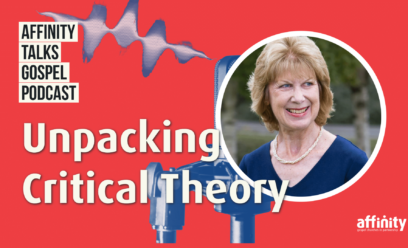Christians and the War on Woke
Nadine Dorries was earlier this month appointed as the new Culture Secretary in Boris Johnson’s cabinet.
She is quite a cultural phenomenon herself, having been temporarily suspended from the Conservative Party during parliamentary time in order to fly to Australia to take part in “I’m A Celebrity”. She is also a very successful author, which began with a trilogy of books about her childhood experiences but then moved on to writing rags-to-riches fiction.
She also has a reputation for being against what is sometimes known as “woke” culture. She once tweeted, “Left-wing snowflakes are killing comedy, tearing down historic statues, removing books from universities, dumbing down panto, removing Christ from Christmas and suppressing free speech”.
As Christians, there are certainly many things about present day cultural trends that concern us. But should we be “anti-woke”? I don’t think so.
For one thing, the term is poorly defined and is now more used as a general term of abuse. Its origins were to do with awareness regarding racial prejudice and discrimination and then expanded to include other area of social inequality. It now encompasses concerns about a whole cluster of issues about equality and power – things that we might have concerns about ourselves, or disagree with entirely.
Being such a slippery word to define means that it is actually not a particularly useful term. And it is certainly not appropriate to use it to dismiss those with whom we might disagree.
It is so important to navigate the culture wars carefully as Christians, so that we do not raise unnecessary obstacles to people hearing the gospel. I might, for example, have nuanced views about our cultural heritage, about empire and slavery; but if I simply describe as “woke” those with an alternative perspective to myself on these matters, it may sound as if I do not acknowledge the plainly sinful aspects of our nation’s history.
Christians have many good and important things to say about truth, free speech and on so many of the moral issues of our day. But if in our debates we are reduced to name-calling, and using a poorly-defined category to do so, we will not get a good hearing.
Deriding “woke” people and culture might please those who agree with us and who have similar concerns, but for those steeped in the importance of self-determination and identity, we need to find more winsome ways of engaging them – ways which commend the good in their position while also gently critiquing the bad.
We are in a spiritual battle but it is not a war on “woke”.
Graham Nicholls is Director of Affinity
Stay connected with our monthly update
Sign up to receive the latest news from Affinity and our members, delivered straight to your inbox once a month.



